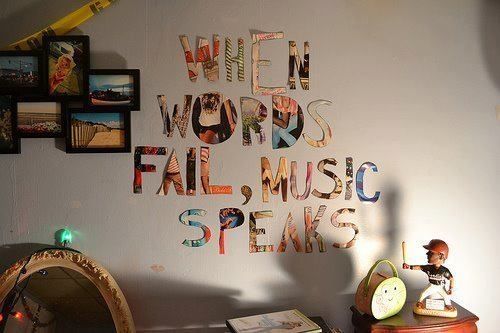
When Words Fail, Music Speaks
When words fail, music speaks. This well-known quote is attributed to Hans Christian Andersen, and it rings true for anyone who has ever experienced a powerful concerto or energetic overture. Music’s instrumental voices speak to us in a way that ordinary speech cannot. It expresses the deepest emotions beyond our ability to express them in words. If you’re experiencing some form of emotional breakdown, consider the power of music to bring you to the right place.
Music is the one language everyone can speak
The famous Hans Christian Andersen quote “Music is the one language everyone can speak when words cannot” is the perfect description of music’s universal nature. It transcends language, culture, and race. It unites people across the globe, bringing them together to experience the same feelings. The phrase comes from the book “What the Moon Saw: And Other Tales” by Hans Christian Anderson, and is attributed to him.
Throughout the centuries, music has merged with other genres and cultures, as it did in the early days of jazz. Other forms of music have benefited from similar fusions, like American jazz, which emerged from primarily African drums. As a result, music now contains bits and pieces from every corner of the planet. Because music doesn’t depend on language processing, it has the added benefit of expressing emotion in ways that words and sentences cannot.
It is the international language
Harvard University research on music patterns and codes shows that they carry unique codes that are understood by all people. The study investigated the similarities between music from different cultures. Although music is often seen as human universal, it is in fact the result of adaptations to other functions. This discovery has implications for understanding human behavior. In addition to understanding the language of music, the study also showed that the underlying mechanism behind music is often not human.
Many authors and institutions have acknowledged the role of music in our lives. Hans Christian Andersen and Henry Wadsworth Longfellow both wrote about the importance of music. These writers and poets believed that music is the universal language of mankind. The universal nature of music makes it more important than language. It transcends all barriers, despite its limited vocabulary and limited expression. Without it, no movie would be complete.
It expresses feelings beyond the limits of spoken language
In some literary works, the absence of words is often a key theme, and this lack is expressed or alluded to using music. Many authors are aware of this and reach for music as the next level of expression. Often they arrive at the same epiphany independently. Nonetheless, the idea that music can express feelings beyond the limits of language has its own appeal. This article discusses the implications for our understanding of what music is, and how we can use it to better express our feelings.
One of the primary reasons to use music as an expressive medium is its ability to convey feelings that are beyond the scope of spoken language. However, some musicians are hesitant to use the term “emotional expression” because musicians do not use it to express their own feelings, and the term usually refers to the meaning that listeners perceive in a piece. Using this term implies that the music reminds listeners of human emotions, which is not the case in all cases.
